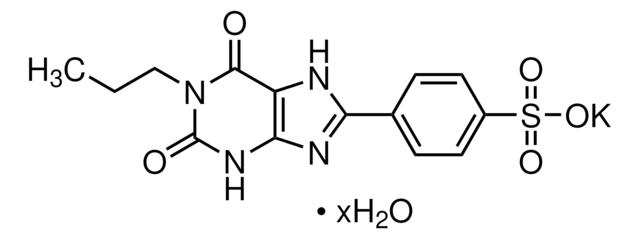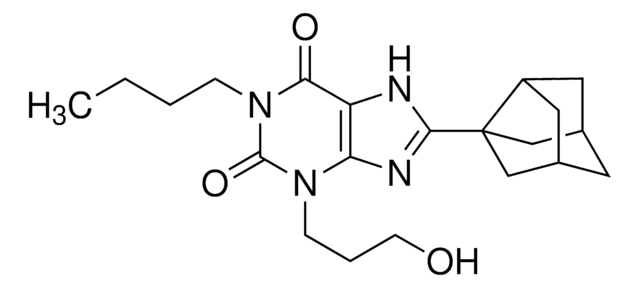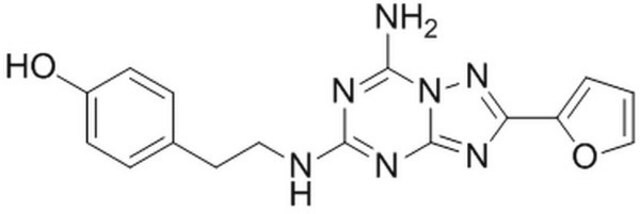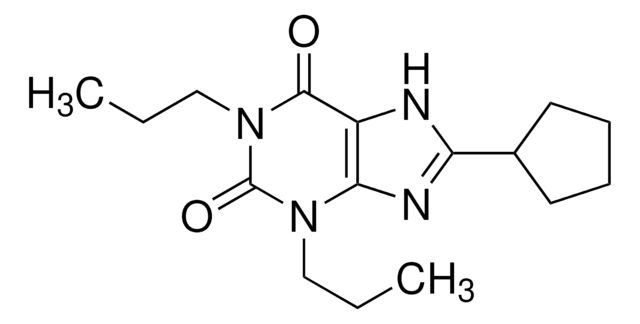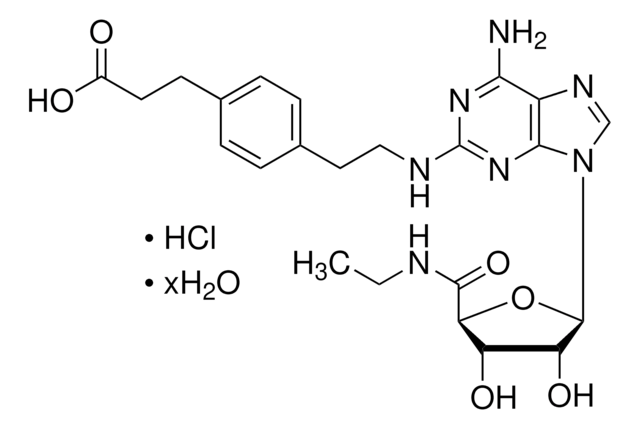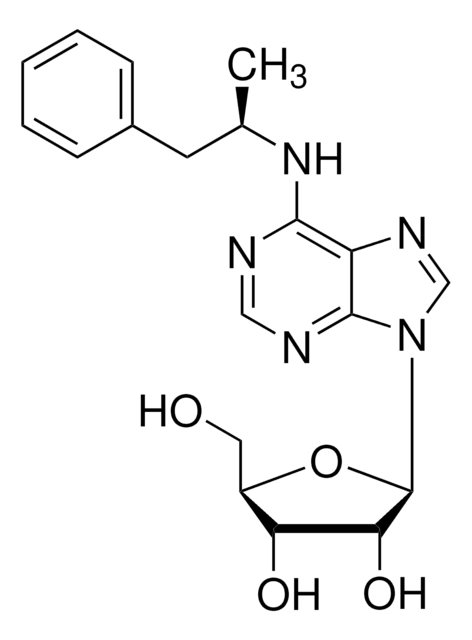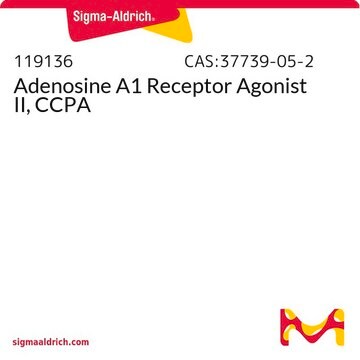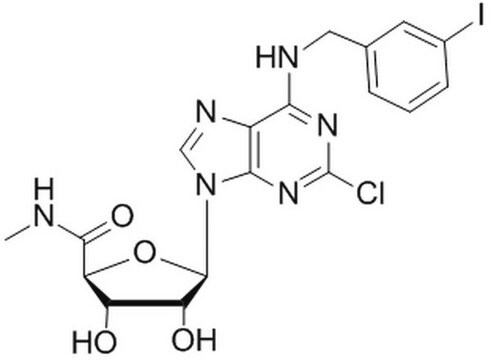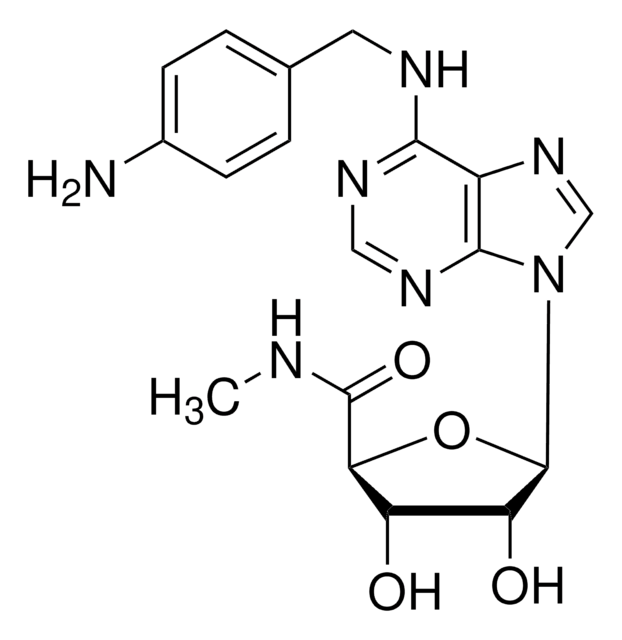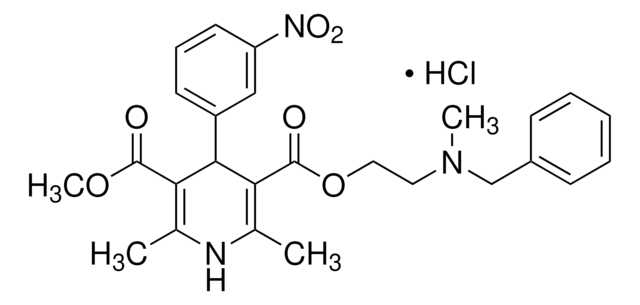M228
MRS 1220
solid
Sinónimos:
9-Chloro-2-(2-furanyl)-5-((phenylacetyl)amino)-[1,2,4]triazolo[1,5-c]quinazoline
About This Item
Productos recomendados
Formulario
solid
Nivel de calidad
color
white
solubilidad
DMSO: 2 mg/mL
2-hydroxypropyl-β-cyclodextrin: insoluble
H2O: insoluble
ethanol: insoluble
cadena SMILES
Clc1ccc2nc(NC(=O)Cc3ccccc3)n4nc(nc4c2c1)-c5ccco5
InChI
1S/C21H14ClN5O2/c22-14-8-9-16-15(12-14)20-25-19(17-7-4-10-29-17)26-27(20)21(23-16)24-18(28)11-13-5-2-1-3-6-13/h1-10,12H,11H2,(H,23,24,28)
Clave InChI
TWWFAXQOKNBUCR-UHFFFAOYSA-N
Información sobre el gen
human ... ADORA3(140)
rat ... Adora1(29290) , Adora2a(25369) , Adora3(25370)
Acciones bioquímicas o fisiológicas
Características y beneficios
Código de clase de almacenamiento
11 - Combustible Solids
Clase de riesgo para el agua (WGK)
WGK 3
Punto de inflamabilidad (°F)
Not applicable
Punto de inflamabilidad (°C)
Not applicable
Equipo de protección personal
Eyeshields, Gloves, type N95 (US)
Elija entre una de las versiones más recientes:
Certificados de análisis (COA)
¿No ve la versión correcta?
Si necesita una versión concreta, puede buscar un certificado específico por el número de lote.
¿Ya tiene este producto?
Encuentre la documentación para los productos que ha comprado recientemente en la Biblioteca de documentos.
Nuestro equipo de científicos tiene experiencia en todas las áreas de investigación: Ciencias de la vida, Ciencia de los materiales, Síntesis química, Cromatografía, Analítica y muchas otras.
Póngase en contacto con el Servicio técnico